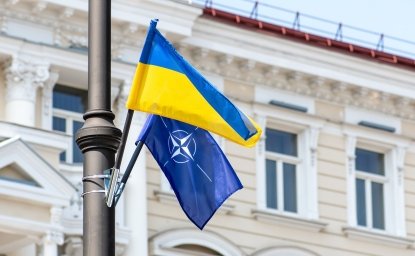The Latest
Iran unleashed its largest missile attack on Israel, launching at least 180 missiles at various targets. Iran says it was retaliation for the killing of Hezbollah leader Hassan Nasrallah and Hamas leader Ismail Haniyeh. While most of the strikes were intercepted by Israel's advanced air defenses, some damage was caused, particularly in central and southern Israel. Prime Minister Netanyahu has vowed retaliation, while Iran warned of stronger attacks if Israel does respond.
Merissa Khurma, Director of the Middle East Program, comments on the latest attack, discussing Iran's regional militia network, the potential for all-out regional war, and the need for political will to avert a larger war.
Transcript of Video
-
Israel Weighs Retaliation After Massive Iranian Missile Barrage
Guest


Middle East Program
The Wilson Center’s Middle East Program serves as a crucial resource for the policymaking community and beyond, providing analyses and research that helps inform US foreign policymaking, stimulates public debate, and expands knowledge about issues in the wider Middle East and North Africa (MENA) region. Read more

Explore More
Browse Insights & Analysis
The OSCE is a Good Value for America






